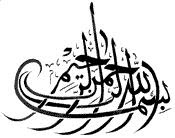English translation by Radzi Sapiee
The moral of its scholars
A practicing follower of Tariqat al-Alawiyah will shy away from qualities which could spur the ego. For example its scholars would never strive to meet kings, and they distance themselves from becoming hopefull of those in power. Alas, on the other hand a good king would usually find them (for good counsel and such).
In ceremonies attended by its scholars, it is usual for every scholar to praise the others but never himself. If praised, the praise would not make him feel important but rather they would be become more humble.
At the times of prayers, it is not necessary for the most pious to become imam or leader of the congegrational prayer. As long as sufficient conditions are met, the oldest of them are given priority to lead. This is consistent with the order the Prophet SAW such as said in al-Bukhari’s authentic collection of Hadiths under the Book of al-Salah:
وإذا حضرت الصلاة فليؤذن أحدكم, وليؤمكم أكبركم
(رواه البخاري)
This means:
"When it is time to pray,thus someone among you should make the call to prayer and the oldest be the imam." (H. R. Bukhari).
Al-Imam Ahmad bin Zein Al-Habsyi asked his teacher Imam al-Haddad; "What are the roads of the Alawiyin?" He answered in brief: "Their roads are five:
1. Ilmu (Knowledge)
2. Amal (Practice)
3. Al-Khauf (Fear of Allah)
4. Al- Wara (Abstinence)
5. Ikhlas (Do something for the sake of Allah alone)
("Say this is my way": From a talk by Jindan Al-Habib bin Novel bin Jindan about Tariqat Alawiyah, towards the close of Rabitah Alawiyah meeting 1407H/2006 M in Jakarta, in a book published by Yayasan Al-Fachriayah, case: 19)
ILMU: One who practices Tariqat al-Alawiyah must be learned before practicing. For example, before he fast he must learn the laws of fasting. Before performing obligatory Hajj, pilgrims must learn its conditions. The knowledge meant here does not have to very broad or thorough, it is enough the know what is necessary to get things done. If one goes to Mecca to perform the Hajj or obligatory pilgrimage, how is he able to complete the Hajj properly? Knowledge is necessary for perfect practice.
AMAL: We must be diligent in practice. Do all the right things. Do plenty of worship and this includes giving for charity, love to help people, give advice and taking care of family matters and community affairs.
This Tariqat gives more importance on practice than on talking. That is why when asked about al-Alawiyah Tariqat some of its Ulamak or scholars said: "Look into their practices and do not look at what they say."
Those who hold fast to the al-Alawiyah Tariqat will always maintain the perfection of their practices for the sake Allah. They do not give advice on something they themselves haven’t practice first. They are afraid that they might be counted among those as mentioned in the Qur'an, Surah al-Baqarah verse 44.
أتأمرون الناس بالبر وتنسون أنفسكم وأنتم تتلون الكتاب أفلا تعقلون
(البقرة: 44)
Which means: "Would you encourage others to do the right thing when you yourself forgot, whereelse you’ve read the book, have you no sense?" (Al-Baqarah: 44)
(Tariqat al-Alawiyah, Syed Hassan bin Muhammad bin Salim al-Attas, Ba'alawi Mosque, Singapore, 28th Rabi 'al-Akhir 1422 H, 19th July 2001.
AL-KHAUF: Fear of Allah, fear of violating the orders of God, and hope for the pleasure of Allah Almighty.
WARA ': Abstinence,keep away from all that is questionable (doubtful). For example, Anas bin Malik said: "The Prophet found a date one the road, then the Prophets SAW said: ‘If I do not worry about the date being for charity, I would have ate it.’” (HR Bukhari and Muslim). For the record the family of the Prophet are forbidden from taking gifts of charity.
IKHLAS: Perform a job because of Allah alone, not for others.
Tariqat al-Tariqat Alawiyah is most easily practiced. It adheres these four things: (1). Ilmu (2) Amal (3) Takhalli (4) Tahalli
(Alwi bin Tahir, Uqud al-Almas, m.s.61, 62, & 64)
1. Ilmu has been discussed above
2. Amal has also been dicussed
3. Takhalli means refrain from committing any sin, being wicked, envious, lazy and other things forbidden by Allah.
4. Tahalli means decorating oneself with all good qualities such as honesty, hard working, executing the Prophet's Sunnah or practices, performing lots of prayers, fasting etc..
Those who practice these are practicing the Al-Alawiyah Tariqat. Thus many have been following the Al-Alawiyah Tariqat without realising it since the Tariqat do not specify certain conditions for its followes nor does it disclose the followers. The important thing is to practice and one’s sincerity towards God.
CONCLUSION
1. Tariqat Ahlul Bait is a way of doing worship or instructions to draw one closer to Allah guided by the Qur'an and Sunnah as practiced by Rasulullah SAW. The practice was extended by Fatimah Azzahra (his beloved daughter) followed by Imam Ali bin Abi Talib, and then the Prophet's beloved grandsons Hassan and Hussein, and their descendants.
2. Alawiyah Tariqat is an Ahlul Bait Tariqat. The name "Al-Alawiyah Tariqat" is given by al-Faqih al-Mukaddam after the name of his grandfather Ubaydillah bin Alawi bin Ahmad al-Muhajir. The Tariqat was founded by descendants of Sayyidina Hussein from the line of Imam al-Muhajir in Hadhramaut who follow the Syafi'i school of thought. Al-Alawiyah Tariqat has five main principles or roads, namely Ilmu (Knowledge), Amal (Practice), Al-Khauf (Fear of Allah), Al-Wara '(Abstinence) and Ikhlas (Doing for the sake of Allah). Practitioners do a lot of praying, fasting, and Wirid (recitals of formulas of remembrance of God). They refrain from committing any sin, disobedience, being envious, lazy, and other prohibited things and garnish themselves with noble practices. Tariqat Ahlul-Bait al-Alawiyah gives importance to practices made sincerely to please Allah.
3. Therefore let us pray to Allah hoping all descendants of Rasulullah SAW and all Muslims follow the way of Rasulullah and his Ahlul Bait, the people of his house in upholding, defending and spreading Islam. Let us try to increase useful knowledge for the world and the hereafter, doing good deeds as much as possible, be afraid only of Allah, doing everything for the sake of Allah alone. Strive to clean ourselves of stains and sins, and adorn ourselves with useful practices for Islam and humanity as a whole following the guidance set by the Quran and Sunnah, and practices of the Ahlul Bait and their ancestors.
4. It is my wish that all Muslims especially the offsprings of Rasulullah SAW would give the best examples as presented by Rasulullah and his Ahlul Bait.
5. God willing, the practices and models of character which have been shown by our beloved Prophet and his Ahlul Bait would make us live happily in the world and the hereafter and be the best Ummah, the best community of the world.
Kuala Lumpur: 23 Dhu al-Hijjah 1430 H (December 10, 2009 M).









No comments:
Post a Comment